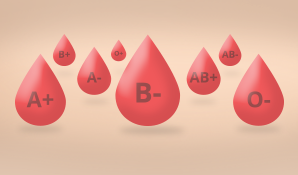For most people, spring is a wonderful time of year. The days are warming up, birds are nesting, and the flowers are starting to bloom. Unfortunately for many, those very flowers are the reason that spring is not a time for joy, but rather a time to stay indoors clutching a tissue to your streaming nose and eyes. Yes, seasonal allergies tend to peak in spring, making this the hardest time of year for sufferers.
Fortunately, there are things that can be done to decrease the symptoms of a seasonal allergy, and if you struggle terribly with this affliction, there are medications that you can take. We spoke to some allergy experts about the best course of action for your worst time of year.
Why do allergies get so bad in spring?Allergies occur in people who are especially sensitive to innocent substances in their environment. According to the Allergy Foundation of South Africa (AFSA), the difference in temperature and rainfall patterns affect the pollination periods of plants and the growth of mould spores, which are common allergy triggers. These increases usually coincide with spring.
“Particular pollens increase at particular times of the year, usually coinciding with season,” says Professor Claudia Gray, allergist at the UCT Lung Institute and director of AFSA.
And then, the warmer the day, the more likely you are to suffer. “Warmer days tend to cause more pollination,” says Professor Mike Levin, CEO of AFSA and head of Allergology at Red Cross Children’s Hospital. Windy days are also problematic because pollen gets disseminated by the wind.
A grass pollen allergy commonly causes nasal symptoms such as itching, sneezing, congestion or a watery, streaming nose, while tree pollen may trigger allergic rhinitis, or a runny nose, hay fever, and red, itchy eyes.
What about the other seasons?Unfortunately, seasonal allergies aren’t limited to spring. In summer, grass pollens – the most abundant of the pollens – peak. “Different grass species flower at different times of the year, so that’s why you have these long grass seasons,” Mike says.
Things improve a little in autumn, especially if it’s a wet season, as moisture in the air weighs down pollen and prevents it from becoming airborne. But rain also fosters the growth of mould spores, which are another common natural allergen, so that can be a cause of autumn allergies.
Winter is the best time of year for allergy sufferers. Once temperatures are very low the plants hibernate and that usually means a break from allergies. However, some people may continue to suffer if they are allergic to year-round allergens, or if the allergen has a long pollen season, or because there are some allergens that are only present in winter.
How is a seasonal allergy diagnosed?There is no “one size fits all” list of allergens, as allergies differ from patient to patient. The AFSA says that each person’s symptoms are caused by specific allergy triggers. To find out what triggers your symptoms, a doctor will ask you when and where the symptoms are worst, and then do skin or blood tests to look for “the allergy antibody”, called IgE in response to different pollens or other allergens.
How can seasonal allergy sufferers ease their symptoms?In spring, pollen counts tend to be higher earlier in the morning, then settle during the day, and increase again around dusk. Therefore, Gray says there will be certain times of the day when sufferers will be less affected than at other times of the day.
Sufferers are most affected outdoors. However, pollen problems don’t end when people come indoors because pollen particles cling to hair, skin and clothing. This is particularly true for children, because they play outdoors, often for long stretches. “When you’ve been outside, it’s important to get rid of the pollen that you might be taking with you,” says Gray. “Take off shoes that might be tracking pollen all over the carpet. Take a shower.”
And if you or your child suffers from a severe seasonal allergy, you should protect yourselves from allergens just as you would from the sun. She recommends wearing hats, sunglasses, long sleeves and pants to reduce your exposure to pollen.
AFSA suggests the following tips to reduce exposure to allergens:
- Wash bedding every two weeks in water heated to at least 60 degrees.
- Avoid carpeting and upholstered furniture.
- Keep pets out of certain rooms like your bedrooms.
- Stay indoors until after midday (if possible) particularly in pollen season, on hot, windy days.
- Do not mow the grass. Stay inside when it is being mown.
- Consider planting a low allergen garden around the house.
- Keep windows closed both at home and particularly when in your car, and where possible use recirculating air conditioning in your car.
- Do not picnic in parks or in the country during the pollen season.
- Try to plan your holidays out of the pollen season or holiday at the seaside.
- If you are sensitive to particular weeds or trees that are near your bedroom window, have them removed.
- Shower when you arrive home and rinse your eyes frequently with water.
How to treat a seasonal allergyOf course, for some sufferers, avoidance is just not going to cut it, and medical intervention becomes necessary. Nose sprays and antihistamines are not a cure, but they can be very effective at treating the symptoms of allergies.
Mike says nose sprays containing an anti-inflammatory “corticosteroid” are the best treatment for all the symptoms of allergic rhinitis. “They need to be used every day because they help with the underlying swelling and inflammation and take a few days before they work. They can’t really be used just occasionally for symptom relief.”
He also recommends using nasal washouts – washing out all the allergens out of your nose using a saline solution available from pharmacies. This treatment might not be effective on its own but may help the medication to work if it is done just before the nose spray.
Vasoconstrictor nose drops are drops or sprays that can be put into the nose to shrink the blood vessels and provide fast relief from blockage. Mike says that these are very effective for short term use but should never be used for more than five days as otherwise the blood vessels “rebound” and cause even worse blockage. “For this reason, we don’t recommend them unless all other treatments are being used and even then, for short times under the direction of your doctor.”
Oral antihistamines are good for treating the symptoms of an itching, runny nose and sneezing, but are less effective than nasal sprays for a nasal blockage and have no effect on the underlying inflammations.
“All antihistamines are effective, but the older antihistamines can cause you to be very sleepy so are not recommended unless they are the only option available. Newer, non-sedating antihistamines are safe to use for a very long time, and are available from a pharmacy without a prescription,” Mike says.
How to cure a seasonal allergy“Avoidance measures and medications help to control symptoms but are not a cure for allergies. The only hope of a more permanent solution is offered by immunotherapy,” says Claudia. “Immunotherapy embraces the concept of exposing the body to small amounts of the relevant allergen over time to shift the immune system into eventually tolerating the allergen instead of reacting to it.”
Immunotherapy is available for seasonal allergens such as pollen, as well as year-round allergens such as pet dander, mould and house dust mite. It is available as intermittent injections, or as sublingual sprays (placed under the tongue daily). The sublingual form has become the most commonly used form, is safe and effective, but is expensive and needs to be used for a period of at least three years.
An end to allergiesFor allergy sufferers it can be heartening to know that there are stages of treatment, from avoidance, through to management right through to a true cure in the form of immunotherapy. Of course, the more medical interventions you require, the more it will cost, but at least there are many preventative measures and over-the-counter medications you can try before you get to this point.




